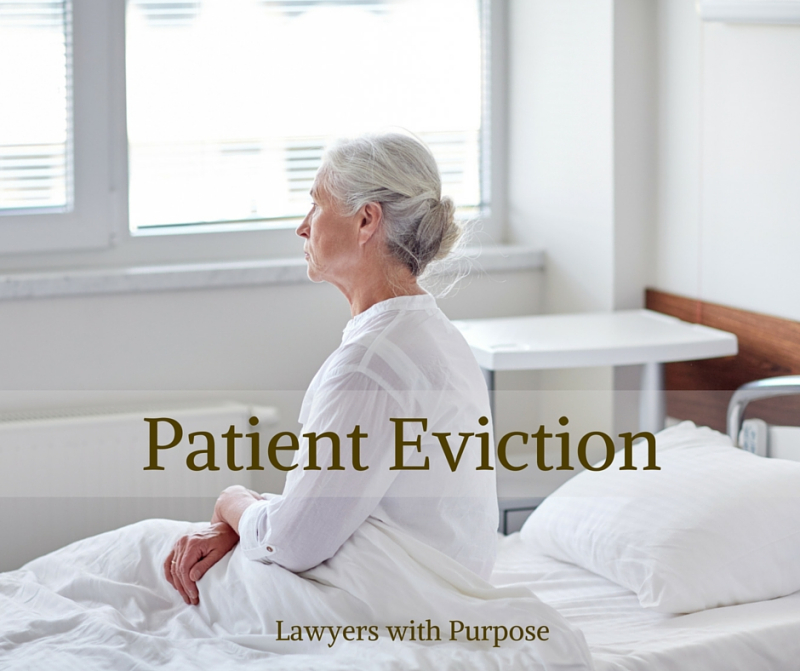Have you received the call from an old client’s family? I certainly have. Dad is acting out. Dad is hard to handle. Daughter needs to sit with Dad all day or they cannot handle him. We complained about Dad’s care, and now they want us to come get him. Dad needs to be sent to the hospital for evaluation and they cannot hold his bed. The stories are always different, but the end is the same. The nursing home wants to discharge a difficult patient and get an “easier” patient in the bed.
This is a growing problem in our country. Between 2000 and 2014, national Ombudsman programs report that eviction complaints are up 57 percent, despite the number of nursing home patients being slightly down. And the correlation between the growth of dementia and the eviction of patients seems clear. On May 8, the Associated Press released a wonderful article titled, “Nursing homes turn to eviction to drop difficult patients,” and it is a must read.
Certainly every nursing home in the country has read and comprehended the 1987 Nursing Home Bill of Rights. Medicare requires that every nursing home give a copy of these rights to every patient. Yet the calls continue to come in from desperate family members. So what are we to do when clients’ families call, desperate to stop a loved one from being unnecessarily discharged to the hospital or to the care of an ill-equipped loved one?
First, along with the federal laws, we must also be informed about our state initiatives. Many states have OBRA 87 as a springboard to add additional protections for patients. California forbids the discharge of patients as they switch from private pay to MediCal and will not allow a third-party payment method as a requirement for admission. In Wisconsin, patients must be given a 30-day written notice for discharge and have their appeal rights explained. In Illinois, patients have the right to be involved in all aspects of their care and to use whatever medical doctors they choose for their care. In Alabama, no patient may be discharged without a written discharge plan presented to the patient sponsor.
Certainly, knowing our state discharge procedures, appellate rights and care requirements is essential to us as elder care attorneys. Our understanding of patient rights and legal protections, along with a phone call to a facility, can often go further than anything a family can do. Forming a friendly relationship with the local ombudsman’s office can also be a great tool in your elder care tool belt. As elder care attorneys, our ethical duties often extend beyond the words on our retainers, and I am proud that we, as LWP attorneys, take those duties to heart by making sure our clients’ rights are protected when they need us the most.
If you want to learn more about becoming a Lawyers With Purpose member give us a little information about yourself. You will then be able to download the Membership Brochure and learn more about our membership benefit options.
Kimberly Brannon, Legal-Technical & Software Trainer, Lawyers With Purpose




Add a Comment